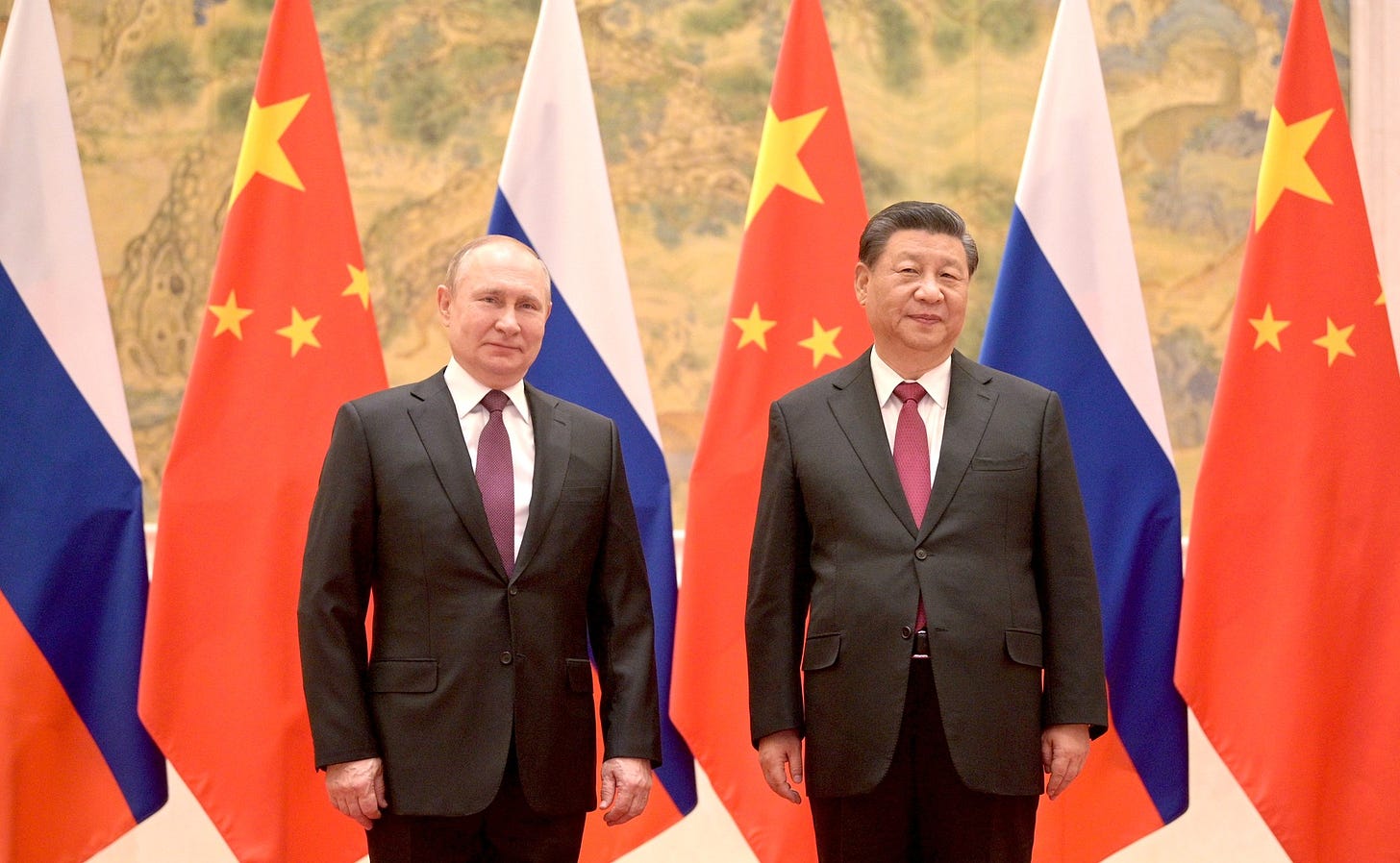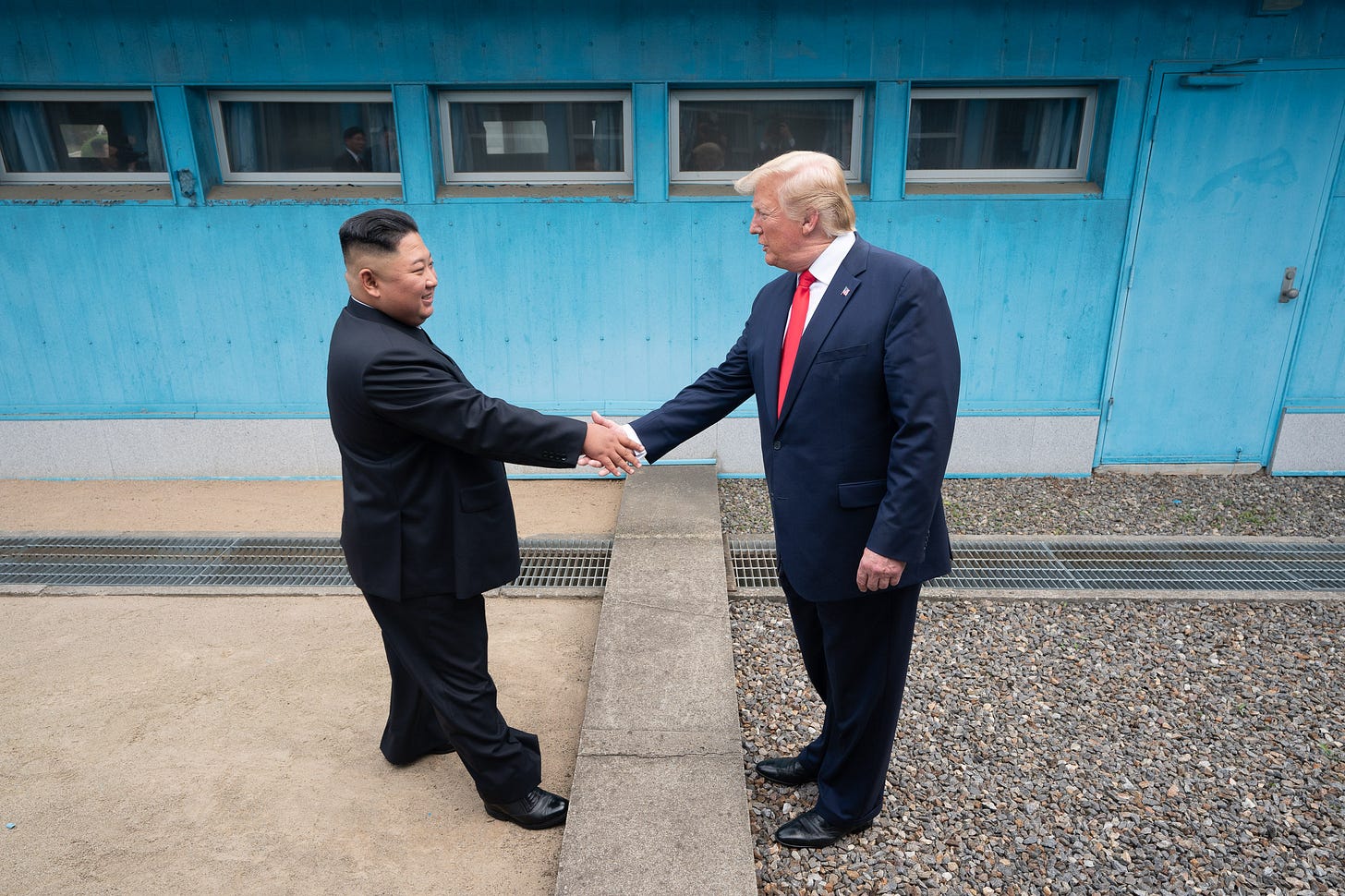How flexible are authoritarians and terrorists in 2025?
A former State Department psychiatrist describes how the U.S. intelligence community is assessing the personality traits of Putin, Xi, and other leaders.

Can a person truly change? It’s a question we sometimes ask ourselves, especially in the new year when people often give themselves resolutions. It’s a question we ask of our love interests, family, and friends, especially when we want something that we aren’t getting. But in the U.S. intelligence community, it’s a question that some psychiatrists know better than to ask. Instead, they look to understand what parts of a person’s personality are flexible against the rigidity. Especially when it comes to authoritarians and terrorists.
“They might be lured into changing behavior and positions that would benefit the United States,” says Kenneth Dekleva, a former senior State Department diplomat and regional psychiatrist whose time overseas included Moscow and Vienna. President-elect Donald Trump is inheriting a vastly different world than the one he saw four years ago from inside the White House, and Ken says understanding the psychology of these leaders is more important than ever.
His mentor was Jerrold Post, a CIA psychiatrist who founded the agency’s Center for the Analysis of Personality and Political Behavior. Post created the field of political psychology. And before he died of Covid-19 in 2020, he built an archive of personality profiles on Osama bin Laden, Saddam Hussein, and other adversarial leaders. Some of them can be found in an Air Force document called Know Thy Enemy. He and Ken also wrote profiles together, including one of Serbia’s then-President Slobodan Milosevic in 1999.
So what about today’s brand of authoritarians, men mostly in their 70s who are simply not going away? There’s Vladimir Putin, Xi Jinping, Recep Tayyip Erdogan, Aleksandr Lukashenko… There wasn’t enough time to discuss them all. But Ken says Putin and Xi, as well Kim Jong Un, are “hardened,” their personalities “well-formed.”
Unfortunately, they also possess resilience. “But because of their own personalities and political decision-making, they can afford to be flexible within their authoritarian systems, if they see that it's in their own strategic interests and in the strategic interest of their countries,” Ken says.
Trump, who prizes himself on making deals, valued these personality profiles in his early days at the White House in 2017, despite his adversarial remarks about the intelligence community. “Particularly in his first weeks, Trump continued to appreciate material CIA produced on foreign leaders with whom he would be dealing,” according to Getting to Know the President: Intelligence Briefings of Presidential Candidates and Presidents-Elect, a book published by the CIA's Center for the Study of Intelligence.

Trump’s famously unpredictable approach will leave authoritarians and terrorists guessing, Ken says. But there is still work to be done. “All the profiles should be updated now because there's so many dynamics that have changed in the world,” he says.
The profiles come from different flows of data — including a leaders’ speeches, interviews, and writing. Video capturing their nonverbal cues. And debriefs with people who have met them, including spies, diplomats, politicians, journalists, academics, and businesspeople.
Ken and I spoke about these leaders and where their personality traits and country’s circumstances could suggest flexibility:
Putin: “He's shown profound ruthlessness,” Ken says. But there are times when Putin has turned to diplomacy, playing the statesman role to engage with the West. “The famous example would be in 2018, after the attempted assassination of [former Russian military intelligence officer] Sergei Skripal [in England]. A few months later, Putin went on a real charm offensive throughout Europe.” (That included dancing with then-Foreign Minister of Austria Karin Kneissl, who later moved to Russia.)
Setting aside the former KGB officer’s blatant lies and manipulations, Putin showed through a major prisoner swap last year that he will indeed negotiate. “A maximalist negotiator who drives a very hard bargain,” Ken says. And in December, Putin said he was ready to talk with Trump.
Ken thinks that Putin is motivated in part by Europe’s weakened state — Germany’s government recently collapsed and France had to form four new governments last year. Ken paraphrased a saying that is often attributed to Vladimir Lenin, “When you push the knife in, if you feel softness, keep pushing. If you feel hardness, draw back.”
He says that Putin is sensitive to slights, which is important to understand in negotiations. “He wants Russia to be recognized as a great power, and he wants Russia and himself to be treated with the respect that befits that.”
When President Joe Biden called Putin a war criminal, despite the International Criminal Court issuing Putin’s arrest warrant, “it makes it much more difficult to negotiate. You've boxed yourself into a corner,” Ken says. On the other hand, Trump called Putin “savvy” for invading Ukraine and “highly respected” after Russia seized Crimea, inviting criticism even from Republicans. But Ken thinks that some appeals to Putin’s vanity have their place.
Xi: Like Putin, China’s president is more receptive to messages that show respect, Ken tells me. (And Xi said it himself in November in Lima, “It is important to treat each other as equals.”)
“I think President Trump's invitation to Xi to attend the inauguration is brilliant,” Ken says. Even if it runs the risk of creating the appearance of coddling dictators. “What it says is, ‘You're like an equal. I want you to be part of this ceremony.’”
Xi swiftly congratulated Trump for his victory, as early as Nov. 6 or 7. He waited weeks longer to congratulate Biden in 2020. And that could be because the circumstances are different now.
In 2020, China’s economy was showing strong signs of recovery from the pandemic. Four years later, China’s economy has decelerated, youth unemployment is high, and U.S. investors are wary. “Xi can't admit it, but he needs Western investment, he can't totally go it alone with their economy,” Ken says. “They're too integrated with us, even though he talks about ‘Made in China 2025’ in kind of a decoupling role.”
Those factors may mean more than Xi’s public remarks, where he has consistently expressed an openness to working with the U.S. as Chinese hackers infiltrate U.S. telecoms and infrastructure.
But Ken also sees signals through diplomatic outreach that Xi wants to “test the waters,” including in a message of condolence to Biden after the death of former President Jimmy Carter, who normalized diplomatic relations between China and the U.S. in 1979.

Kim: Disengagement with the U.S. has been the name of Kim’s game since 2019, when denuclearization talks collapsed in Stockholm. Today, North Korea has gotten closer to Russia, grown more aggressive with its nuclear doctrine, and advanced its missile, nuclear, and cyber programs.
“The profile in what is published and recommended up to the level of President Trump would try to suggest how we re-engage a Kim who is tilted far more toward Russia and Putin, and how we engage the Chinese to help some,” Ken says.
He thinks that Trump’s relationship with Kim — “I do get along well with Kim Jong Un!” — could potentially be leveraged. In 2018, Trump became the first sitting American president to meet a North Korean leader. That year, Kim fired exactly zero missiles… not that it ultimately amounted to any true progress with Pyongyang.
Ken thinks that another letter, after the 27 they exchanged in their “bromance” between 2018 and 2019, could potentially draw Kim back into negotiations. “I would mention ‘the successful summit in Singapore’ and ‘our meeting at the DMZ’ — that would be the kind of language you use because those were historic. And you tap into his sense of history.”
Notably, Kim has not publicly congratulated Trump on his electoral win. And North Korea is likely to keep pushing for sanctions relief and a suspension of joint military exercises with South Korea, which could shake relations with U.S. allies in the region. Another variable is the instability in South Korea, where investigators have tried unsuccessfully to detain President Yoon Suk Yeol, impeached for declaring martial law in December.
“Trump’s ego and desire to shape his own legacy may be a further motivating factor to engage Kim,” a Brookings analysis states. “It would be tempting for Trump to become the first president to ‘solve’ the North Korean nuclear problem (whether that entails denuclearization or not) and normalize U.S.-North Korea relations.”

Ahmad Hussein al-Sharaa: Since Abu Mohammed al-Jolani’s lightning offensive toppled Bashar al-Assad in Syria, the Islamist leader of Hayat Tahrir al-Sham (HTS) is going by his real name, Ahmad Hussein al-Sharaa. He not only dropped the nom de guerre, he trimmed his beard, donned a new suit and watch, and insisted his Al-Qaeda affiliation is deep in the past.
HTS is a U.S.-designated terrorist organization, but Sharaa has wanted to prove that he has evolved as the years have passed. “I believe that everyone in life goes through phases and experiences, and these experiences naturally increase a person’s awareness. A person in their twenties will have a different personality than someone in their thirties and forties, and certainly someone in their fifties,” Sharaa told CNN in December.
He went on to assert his flexibility. “Sometimes, it's essential to adjust to reality. And because someone who rigidly clings to certain ideas and principles without flexibility cannot effectively lead societies or navigate complex conflicts like the one happening in Syria.”
Sharaa says a legal framework must protect all groups in Syria but certain developments have raised concerns: He says it will take up to four years to build infrastructure for elections. And HTS is revamping Syria’s education system to change religious references and remove the theory of evolution (as well as mentions of Assad) from textbooks.
“I think looking at elections is a traditional but wrong metric, especially in that part of the world. Syria has no real history of democratic processes,” says Ken. (France crushed Syria’s short-lived “civil representative monarchy” in 1920.) “I would look at how [Sharaa] treats religious minorities. I would look at who he appoints to leading cabinet positions, and I would look at what he does in terms of meeting with other foreign leaders in the neighborhood.”
Then there is the amphetamine Captagon, aka “poor man's cocaine,” which brought the Assad regime billions. “I've talked to some people who have told me that nothing has changed in the Captagon trade, that life goes on,” Ken said. He declined to say where the people worked, simply describing them as “very knowledgeable sources” who have worked and traveled in the area for decades, one in the government and another in the private sector.
Sharaa wants sanctions that were imposed during Assad’s reign to be lifted. So far, the U.S. has removed the $10 million bounty on Sharaa’s head after diplomats met him in Damascus. It is a waiting game to see whether words align with actions.


